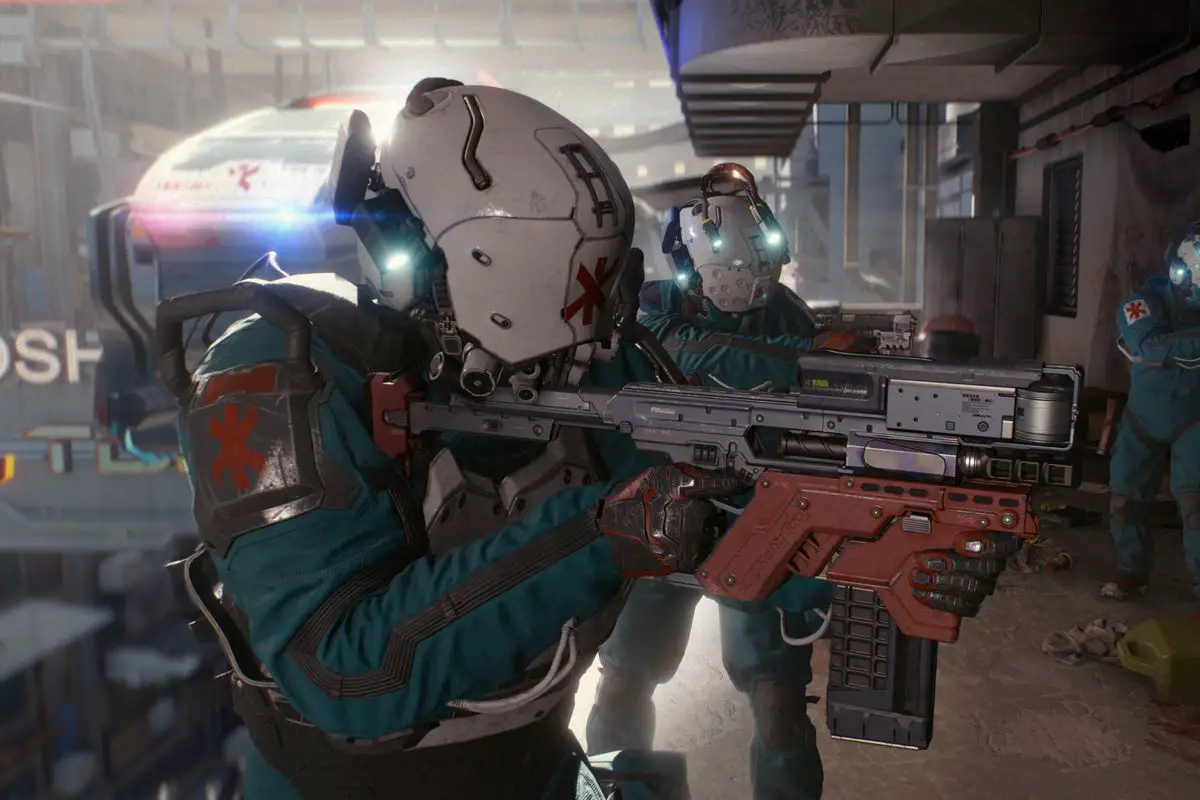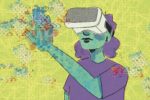The City of Angels is bathed in neon. A flurry of airborne hovercars cuts through a dense blanket of smog. The LAPD, made up of humans paired with cyborg counterparts, patrols the seediest corners of the city, tasked with keeping order under the inescapable fluorescence of ads for everything from virtual reality to a bowl of ramen.
Los Angeles’ underground economy has become overrun with hackers, body modifiers and a growing resistance, a group of people ready to take down the mega corporations that have taken over the world. This is what life has become in the City of Angels.
Or, at least it’s the life envisioned in “Blade Runner,” Ridley Scott’s 1982 cyberpunk classic. The film is set in Los Angeles, in a then-far-off November 2019. As the majority of the cyberpunk genre’s most enduring entries argue, the future is not so far off.
Cyberpunk as a cohesive genre originated in the 1980s. It was an extension of the more conventional trends of literary science fiction adapted for an era of rapidly evolving and increasingly interactive innovations in home technology. Writers like James Patrick Kelly and William Gibson, whose novel “Neuromancer” is widely cited as an influence by the majority of cyberpunk creators, were the ones to shape the genre into its current form. The word “cyberpunk” itself was created by writer Bruce Bethke in 1983. Since then, cyberpunk has become one of the most popular subgenres under the science-fiction umbrella.
Sci-fi’s appeal has always lain in its ability to create a world by extrapolating the future, however fantastical that may be. The draw of cyberpunk was much the same, though it was often more interested in injecting these fantasy worlds with the very real anxieties wrought by modern-day technology.
Cyberpunk was sci-fi for those who saw the power of the computer, its mounting ability to overtake everything personal (attention, time, privacy), and were bracing for impact. It was speculative fiction for everyone wary of the growing influence of massive corporations and ready to be leaders in the technological rebellion.
To reflect this, cyberpunk’s protagonists — the personalities that would become the face of the genre — were uniformly disobedient. They were hackers, grizzled war veterans unintimidated by technology or wayward cyborgs. These rebel archetypes were designed to move within and against a universe dominated by technology and lorded over by greedy corporations. Yet, despite their countercultural roots, books like “Neuromancer” and movies like “Blade Runner” and “Akira” have gone on to become massive cultural touchpoints.
It should come as no surprise, then, to anyone familiar with the economics of entertainment that the enduring fascination with cyberpunk and its associated aesthetics have led to an explosion of new entries into the genre.
In just the past couple years, films like “Ready Player One,” “Ghost in the Shell” and “Blade Runner 2049” have brought cyberpunk to mainstream movie audiences. Even the upcoming “Detective Pikachu” has re-envisioned the adorable monsters of Pokemon lore roaming through a cyberpunk-inspired city. Additionally, the upcoming “Cyberpunk 2077” has reached deafening levels of hype in the video game world, while shows like “Mr. Robot,” “Maniac” and “Altered Carbon” have brought cyberpunk into the living rooms of viewers around the world.
The current boom in interest for cyberpunk makes sense, as the distinction between science fiction and reality blurs. Experimental.design is a “world-building” firm that forecasts consumer trends, as well as predicts advances in technology in order to help steer the product development processes of corporations like Ford, Intel and Nike. Essentially, these companies have employed a trait of effective cyberpunk — creating a future world based on the behaviors of the present — but have turned it around with a distinctly capitalist twist.
So, as one of its most iconoclastic offshoots, how exactly does cyberpunk fit into this new era of science fiction?
Following the release of the first trailer for “Cyberpunk 2077” at the E3 Expo, Gibson, often hailed as the father of cyberpunk, expressed his feelings about the state of the genre he helped create. He tweeted, “The trailer for Cyberpunk 2077 strikes me as GTA skinned-over with a generic 80s retro-future, but hey, that’s just me.”
The overall trend of science fiction being used as a marketing tool for major companies, as well as the co-opting of the cyberpunk visual palate by studios looking to profit off its popularity, present a bleak state for the genre. As Gibson seems to imply, the aesthetic created by cyberpunk has become divorced from its origins.
What was created as means for provocation, as an ongoing manifesto to liberate the techno-slave from the control of giant corporations, has become commodified. It is an aesthetic borrowed upon to turn a profit by the very companies it was created to rebel against. As is the case with most things popularly embraced, the edges of cyberpunk have been dulled to appeal to as many people as possible, with the very foundation of its creation being ignored in the process.
But still, there are those attempting to save the soul of cyberpunk. Although shows like “Mr. Robot” and “Maniac” are distributed by massive companies (NBCUniversal and Netflix, respectively), they each feature plots centered around the mistrust of mega corporations. After attracting the ire of Gibson himself, the creators of “Cyberpunk 2077” have stressed that their game will focus on creating a story loyal to the roots of the genre.
From its very beginnings, cyberpunk was a genre born from and built around techno-anxiety. Over the course of its existence, the genre has become especially prescient in its predictions of what would become of the intersection between fiction, technology and commerce. Its success has sprouted from its ability to build on technology the world could understand, though extrapolated to the point of being dystopian. As much as its visuals have come to define the genre, the story of cyberpunk has always been more than just neon lights and floating cars. At its core, cyberpunk has been a story of the world made slightly unreal, and anyone bold enough to rebel within it.
















